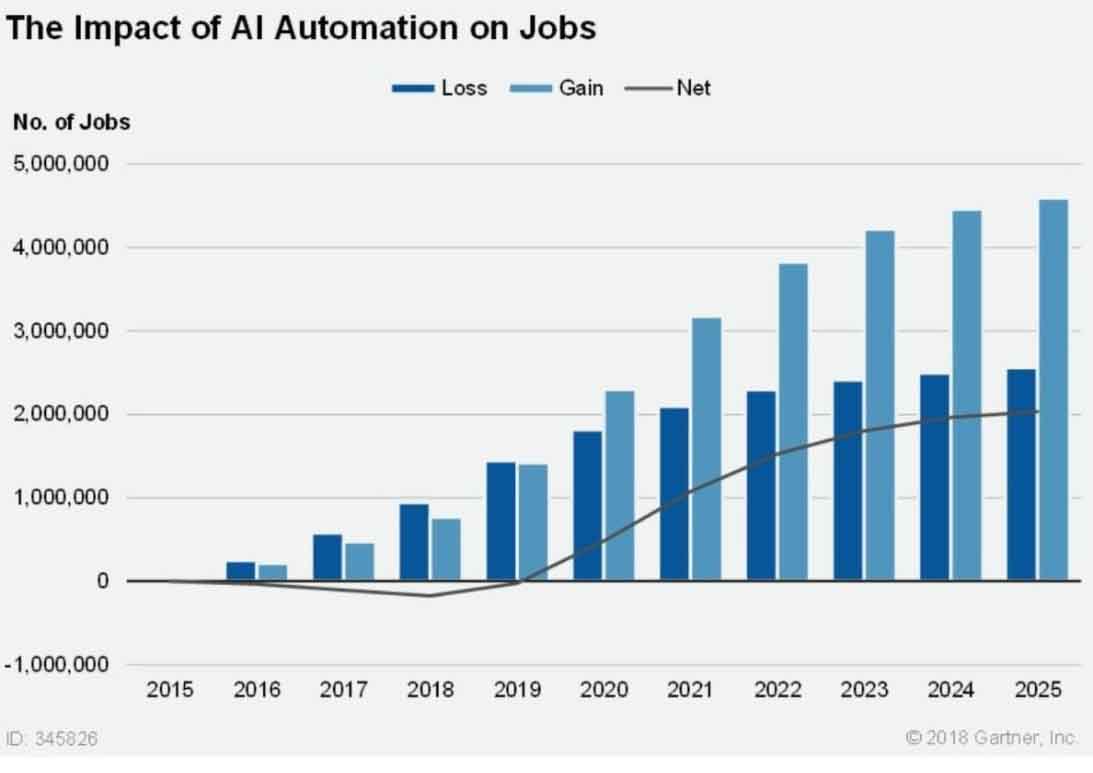We are creatures of habit. We like our routines and are wary of change.
When faced with the unknown, we often jump to conclusions, and most probably the worst of it. And, new technology has the unique capability to incite fear, a far and wide spread fear. Just take a look at the articles which come up for a generic RPA search – “Robotic Process Automation: The new IT job killer?”, “How to stop a robot from stealing your job”, “Is your job safe in the era of RPA?”
The message here seems clear: Hello robot, Goodbye job! But let’s take a moment to reconsider and understand the true nature of RPA.

New Jobs on the horizon
Historically, new technologies have created more jobs than they’ve killed off. So, let’s start with seeing the glass as half full, rather than half empty!
New technologies such as Artificial Intelligence (AI), Block chain, Cloud computing, Big Data, and the IoT will employ millions of people, but in jobs which are very different from what we know jobs to be today! This is a possibility which we need to accept, as RPA might eliminate some jobs, but it’s much more likely to result in a restructuring of the global workforce in which new opportunities for careers are presented. RPA is less focused on displacing workers or causing companies to downsize; instead, the automation of menial and time-consuming activities allows employees to shift their focus to more meaningful front office and client-facing activities. In addition, the development and maintenance of RPA technology will itself provide new technology focussed job opportunities.
AI & RPA Will Create 2.3 Million Jobs in 2020, While Eliminating 1.8 Million- Gartner�

A Really Long List of Jobs Coming Your Way Thanks to RPA
RPA produces jobs through reshoring and maintenance, and also reallocates tasks in a way that allows employees to focus on what’s important. RPA should be approached by employees as a tool that will enable them to make the most of their capabilities and by companies as a mechanism through which they will be able to maximize staff productivity and maintain a competitive edge.
Following are the list of new jobs on the horizon:
- Business Analyst-Robotics Process
- Business Excellence Advisory-Robotic Process Automation
- Automation Consultant
- Automation Developer
- RPA & AI-Capability & Solution Lead
- Robotic Process Automation-Technical Architect
- Automation Manager
- Robotics Engagement and PMO Manager (RPA)
- Automation-Sr. Sales Engineer
- Partner & Global Innovation Leader
- RPA Strategic Partners Director
- Director Business Transformation – Customer Success
- Director of Client Relations (RPA)
In the future, jobs will become less functional and more blended, or multi-layered, which requires more complex skillsets!
Organizations will need to acquire talent which blends technical skills with operational skills (industry specific skills) as well as soft skills such as critical thinking, adaptability, continuous learning, active listening and other non-traditional capabilities. Education and training from technology professionals needs to be much more holistic, given that technology is transforming many aspects of our lives. With education and training institutions having to adjust offerings so they develop the required blended and holistic skill sets for the needs of the emerging job market. These new jobs emphasize skills, knowledge and willingness to learn, over traditional highly specialized degrees, and the rather narrow scoped careers that gave people their early work experience.
RPA will eventually be able to make decisions required for non-routine tasks and this will drive the RPA market to new heights.

“Our generation has inherited more opportunities to transform the world than any other. That’s a cause for optimism, but only if we’re mindful of our choices”.

